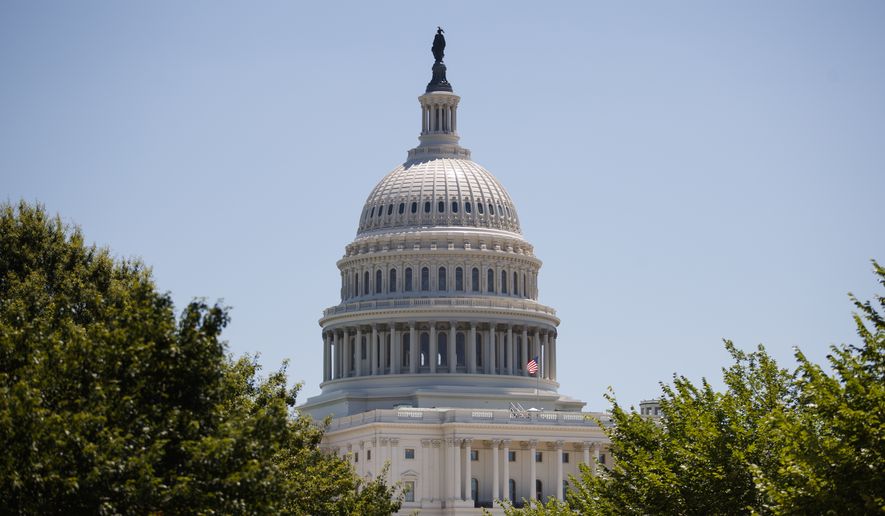President Trump may be on his way out, but Senate Republicans want to send him off with a last infusion of cash for his border wall.
GOP senators on Tuesday unveiled their spending bills to keep the government running through 2021, and they included nearly $2 billion in new money for wall construction and enough money to maintain detention of undocumented immigrants.
Those mark serious clashes with Democrats, who control the House and whose spending bills lack wall money, and who proposed slashing detention beds and deportation officers at U.S. Immigration and Customs Enforcement.
Fiscal year 2021 began on Oct. 1, but the government has been operating under a stopgap “continuing resolution” that extended last year’s funding. That money runs out Dec. 11, and lawmakers are racing that deadline to get full-year funding in place.
Senate Appropriations Committee Chairman Richard Shelby was optimistic about getting a deal.
“Time after time, we have demonstrated our willingness to work together and get the job done. We have before us the opportunity to deliver for the American people once again,” he said.
But Democrats said the gaps between the House and Senate are significant.
Democrats have been insistent that Mr. Trump not get any more money for his border wall. Republicans are going the other way, including an increase in money compared to the $1.375 billion Congress granted the last two years.
Mr. Trump has not felt beholden to those limits — he went around them by siphoning money from Pentagon accounts in both 2019 and 2020 to build beyond the money Congress approved.
House Democrats also proposed a 25% cut in ICE’s deportation force. The Senate GOP bill keeps the agency whole.
In addition to immigration fights, the two sides are also likely to clash over education funding levels and GOP-proposed cuts to foreign family planning assistance.
The new spending fights will also come on top of a months-long stalemate over the next round of coronavirus relief.
“This country is headed for a deadly winter and it is long past time for us to provide the resources the country needs to get this virus under control and our economy back open. These bills do not provide any such relief,” said Sen. Patrick Leahy, the Democratic vice chairman of the committee.
The annual appropriations process to fund the government consists of 12 bills.
Most of those bills were written on a bipartisan basis in the Senate, both parties said, which signals a number of areas of agreement.
But the Homeland Security spending bill, which covers immigration, has become an almost intractable problem in recent years.
House Democrats, who are able to power bills through the lower chamber without needing bipartisan support, passed 10 of 12 bills over the summer. But they had to pull the Homeland Security measure from the floor after the deep cuts left moderate Democrats queasy.
In the Senate, none of the bills has gotten a vote in committee or on the chamber floor.
Mr. Leahy called that another breakdown in the process that’s supposed to define the Senate.
“That is how a democracy is supposed to function, regardless of which party is in the majority. We should not be running away from the tough issues,” he said.
The spending bills are expected to be packaged into one “omnibus” measure, creating a take-it-or-leave-it choice for rank-and-file lawmakers.
Senate Majority Leader Mitch McConnell said Tuesday he senses a bipartisan desire to approve a bill.
“I think both sides think it would be better to do an omnibus appropriation bill before the end of the year rather than another short-term punt, so hopefully we can get there,” he said.
He also said he’s interested in starting talks on another coronavirus package, but Republicans said House Speaker Nancy Pelosi will have to budge from her stance that nothing short of a package with a price tag in the $3 trillion ballpark will do.
“If that’s her position, she needs to go to bed. She’s drunk,” said Sen. John Kennedy, Louisiana Republican. “There’s no way that proposal was going to pass the United States Senate before, and it’s certainly not going to pass now.”
• Stephen Dinan can be reached at sdinan@washingtontimes.com.




Please read our comment policy before commenting.